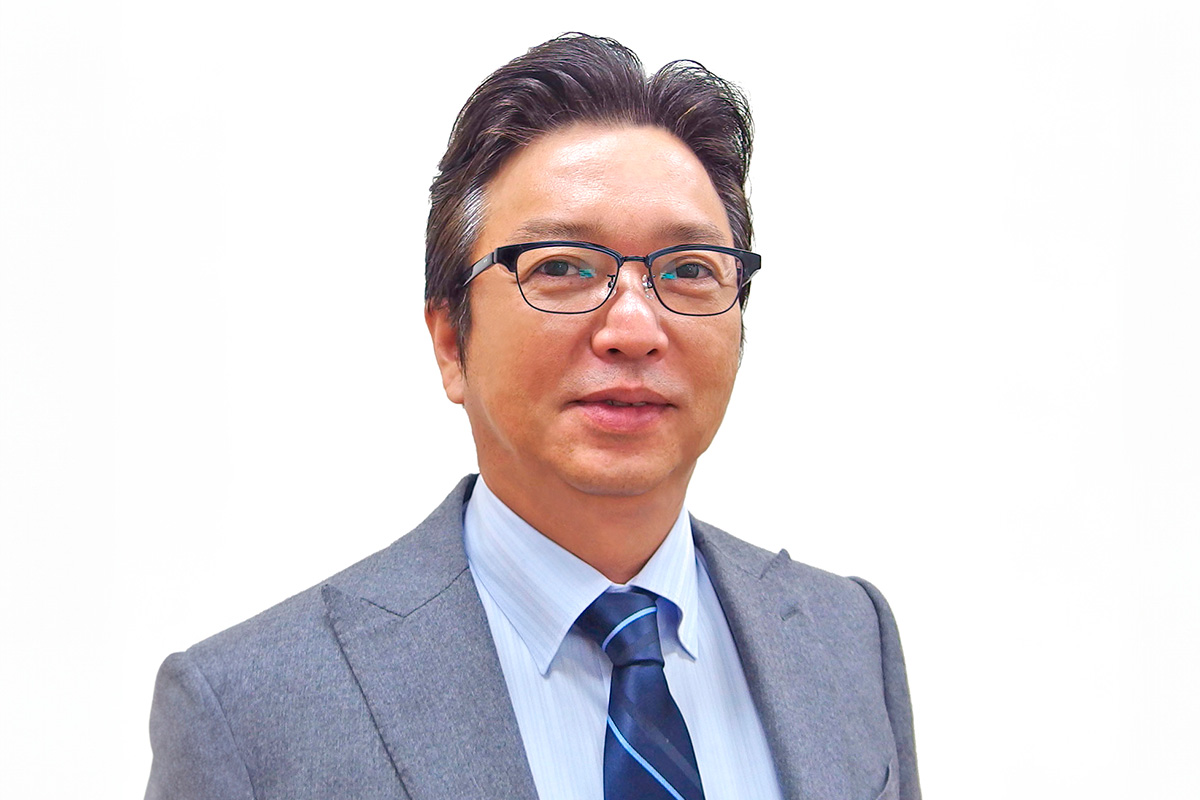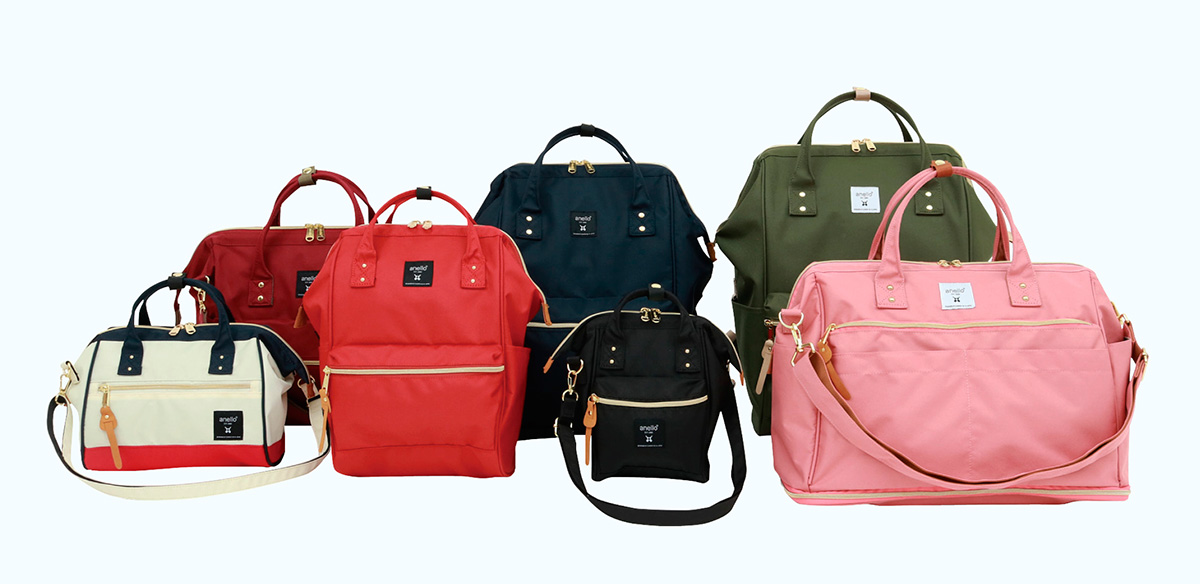Takeshi Yoshida, Representative of Carrot Company Co., Ltd., reveals the company's journey and adaptation in an insightful interview. The discussion delves into the impact of the weakened Japanese yen, the resilience of Carrot Company's business model amid COVID-19 challenges, and their pivotal shift toward sustainable practices. Yoshida highlights the brand's milestones, emphasizing the success of Anello bags and their strategic global expansion. Offering a glimpse into their future, Yoshida envisions a stronger foothold in Europe and Asia, charting the course for the company's next phase of growth.

In the past three years, the world has seen logistic disruptions caused by the COVID-19 pandemic and the US-China decoupling. As a result, international firms are looking to diversify their supply chain. Reputed for their reliability, Japanese companies are in a very interesting situation. Observers have argued that the weakened Japanese yen presents a unique opportunity for Japanese companies. Do you agree with this sentiment, and what advantages do Japanese suppliers have in this current macro environment?
It is difficult to fully agree with that sentiment because the present scenario appears favorable for businesses specializing in exports. However, I’m not certain whether the current environment benefits us all because many Japanese manufacturers primarily operate within the domestic market.
The depreciation of the yen has significantly increased procurement costs. While approximately 20% of our total sales come from exports, the remaining 80% is derived from the domestic market. In this context, the overall situation isn't as favorable for us.
Throughout the COVID-19 pandemic, our primary obstacle wasn't supply chain disruptions but rather a decline in product sales. Surprisingly, the supply chain disruption didn't emerge as a significant concern, but the pandemic made me realize a reality. In my 37 years in this industry, it became evident that the pandemic's restrictions, such as not being allowed to go out, directly impacted our sales. Despite bags being a commonly used item when people go out, the restrictions resulted in a decline in sales as outdoor activities were limited.
Since COVID, have you made any business decisions like diversifying your current portfolio to ensure you don’t rely solely on bags? What changes have you made to your business model?
Despite doing everything we could, such as enhancing our online shops and improving our home page, we couldn’t do anything to change the overall situation. Nevertheless, we were determined to continue making developments. We continued participating in exhibitions at least five times a year. We believe that it is easier to resume selling than to restart the process of product development. Hence, we never stopped developing new products.
Japan's industry has been outspokenly ambitious about setting and tackling carbon-neutral targets. While the aim of carbon neutrality by 2050 remains the end goal, the manufacturing industries continue to do trial-and-error to meet the goal of a 46% reduction of CO2 emissions by 2030. Knowing you can develop approximately 1,000 products a year, how can you respond to these market changes and speed while keeping a sustainable production model?
We have undertaken a simple yet impactful initiative by incorporating recycled PET bottle materials into our products. We are continuously contemplating and exploring ways to achieve carbon neutrality and sustainability. I think it’s best to use recycled materials for our products.
More importantly, we need to reduce our inventories to minimize waste. To achieve that, we have to develop products with high market demand, directly contributing to the sustainability of the manufacturing sector. This simple contribution is something that SMEs like ours can actively make.
Our journey in incorporating PET bottle materials for our products started in May 2020, and to date, we have utilized approximately two million PET bottles in our production processes.
Since your foundation in 1988, you have become a specialized manufacturer of personal accessories, such as bags, wallets, and umbrellas, with a top domestic market share. Could you highlight some of the milestones in your history and how your business model has evolved?
As the sole founder of this company, rapid growth was a challenge due to limited financial resources that hindered hiring and material procurement on a large scale. Thus, my strategy has always been focused on achieving gradual, incremental growth each year.
Our establishment of the Anello brand represents a significant milestone. It’s like a sapling that sprouted from the seeds of my dedicated work. Reflecting on the company's history, the greatest challenge emerged with the advent of COVID-19. Initially, I anticipated it to last only six months to a year, but the reality proved different. While we had experienced financial crises such as the Lehman Shock, the impact of COVID-19 surpassed it in terms of severity and lasting consequences.
Anello is famous for producing bags that are preferred by clients all over the world. What are the competitive advantages of Anello’s bags, and how are they superior? What is your branding strategy to ensure that there is successful growth?
The standout features of Anello bags lie in their affordability and user-friendly design. While we strive to incorporate trendy elements, we are cautious not to overdo it. Another notable feature of our bags is their exceptional texture and smooth operation of their fasteners. These aspects collectively contribute to our product's appeal to Japanese consumers, who prioritize these qualities in their selection process.
In the international market, preferences vary slightly, with users placing a premium on strength, given their frequent use of bags for carrying various items. In contrast, our approach in Japan emphasizes ease of use, complemented by a diverse range of color options to align with fashion preferences. These unique characteristics serve as competitive advantages for Anello.
Given the size limitations of the Japanese market, our branding strategy involves concentrating on overseas expansion in tandem with our sustainability initiatives.

Anello bags
Are there any overseas companies or specific regions you would like to cater your OEM services to?
We've made the strategic decision to showcase our presence in the overseas market through the combined branding of Anello and Legato Largo as our double-name brands. We aren’t considering getting commissions from other companies for OEM production.
In such a competitive market, how would you like to expand your brand in the global market in terms of B2C?
At present, we operate 108 Anello shops in Thailand, primarily concentrated in Bangkok and an additional 77 in the Philippines. Additionally, our Anello products are wholesaled to 14 countries, where we aim to establish boutique shops. Recently, we participated in the Maison et Objet exhibition in Paris, where we set up a pop-up store at MARK STYLE TOKYO which has transitioned from a pop-up store to a regular establishment. Our focus is now directed toward the European market as we endeavor to expand the Anello brand in this region.
Your brands include Anello, Anello Grande, Legato Largo, and Untule. From a business perspective, which of the products you offer within these brands do you reckon has the most growth potential? Are there any types of products that you are going to produce in the future?
The Anello brand stands out as our top-selling product, and we anticipate its sustained growth in the global market. Our ongoing emphasis will remain on the Anello brand. Going forward, we also aim to introduce Untule's umbrellas. While people enjoy abundant sunlight in countries like Europe, the potential harm from prolonged sun exposure and sunburn on the skin and health is a concern. We are hoping that our sun-protective umbrellas will gain popularity on a global scale in the future.
As part of our strategic expansion, we are actively concentrating on growing the Anello brand in the European market. Additionally, considering the proximity of New York to Europe, we are contemplating an expansion of the Anello brand in New York.

Untule's umbrellas
At Carrot Company, ensuring the safety and quality of your products is paramount. You are committed to providing products to customers so they can use them confidently, and you continuously work to enhance their quality. How do these rigorous quality control measures give your company an advantage over other companies in the industry?
In the Japanese market, the standard for product acceptance is heavily rooted in quality. Our business has thrived in an environment that prioritizes quality, and we have consistently upheld this principle for years. Surprisingly, despite the usual demand for quality in Japan, there was a notable surge in the popularity of fast fashion products at one point.
We have always aimed to deliver high-quality products beyond the price value to provide our customers with a sense of security. We are confident in the quality of our products even before the final inspection because we choose the best materials and optimize the production steps to minimize defects. Unlike many fast fashion brands that cater to specific age groups and consumer types, our target audience is broad. We strive to create designs that resonate with a diverse range of consumers.
Are you currently looking to participate in fashion shows or collaborate with fashion companies or famous fashion designers?
We are eager to embrace challenges through active participation in exhibitions, collaborations and partnerships to the fullest extent possible. This perspective led us to engage in prominent events like Maison et Objet in France and Magic Show in the US. While recent circumstances may have hindered our participation in that particular US exhibition, we don't hesitate to seize every opportunity to engage with potential partners wherever they may be found.
Regarding collaborations with renowned designers, our in-house team is exceptionally talented, and, for now, we are not actively considering external collaborations. However, I continually draw inspiration from industry leaders like Louis Vuitton and Uniqlo, using them as both a reference and a benchmark. I’m always impressed by their products.
Local partnerships hold significant importance for us, as we learned from our experiences in expanding to the United States, where we used to have a local company. We found that product preferences can vary significantly even within neighboring towns. This discovery emphasized the importance of understanding local dynamics, as demands can differ just one block away.
Considering how far the US is, we could not control that market from Japan. Working with local partners to gain valuable insight and exchange localized information is necessary. Therefore, we will continue to actively look for local partners in the overseas market.
If we were to come back in 2028 to interview you on your 40th anniversary, is there a personal goal or ambition you would like to achieve for the company by that date?
Our vision for the next five years includes achieving success in both the European and Asian markets.
0 COMMENTS